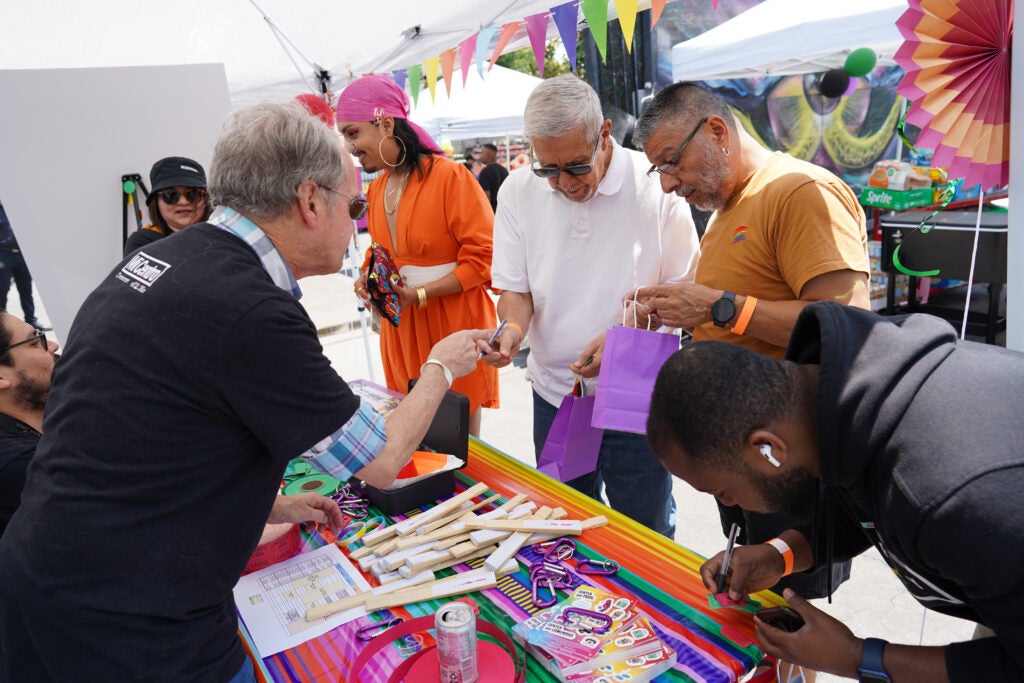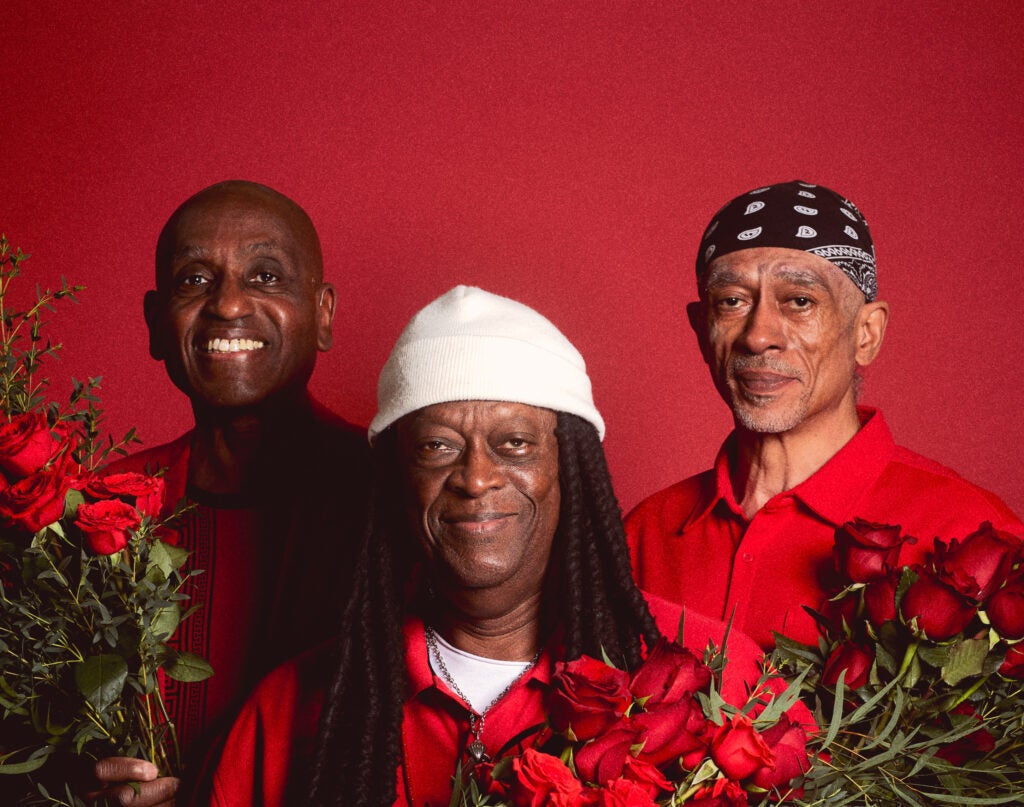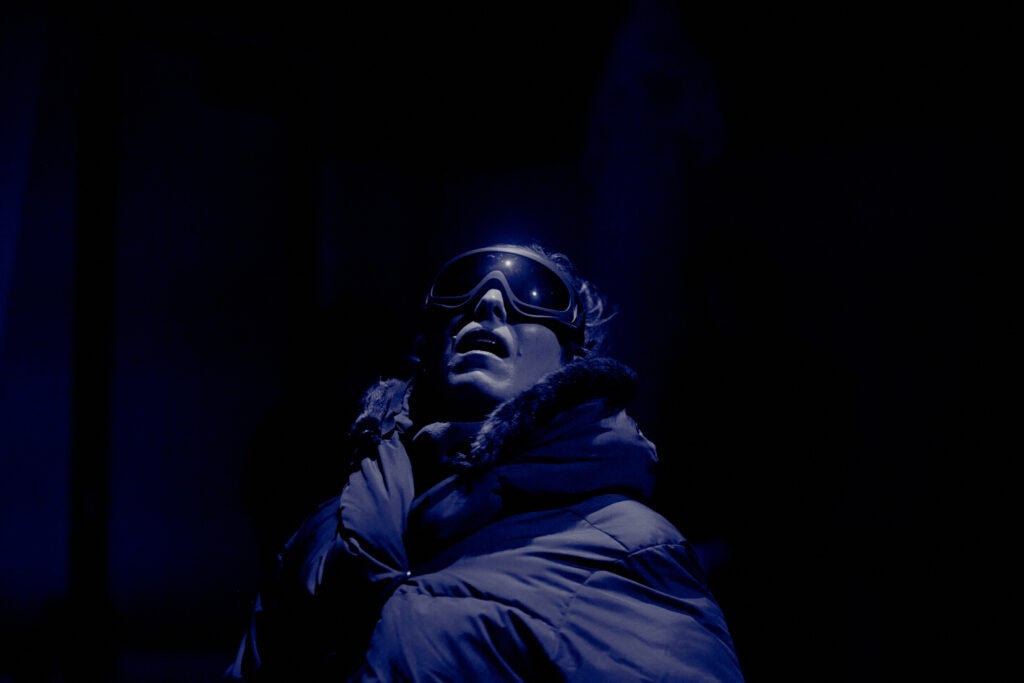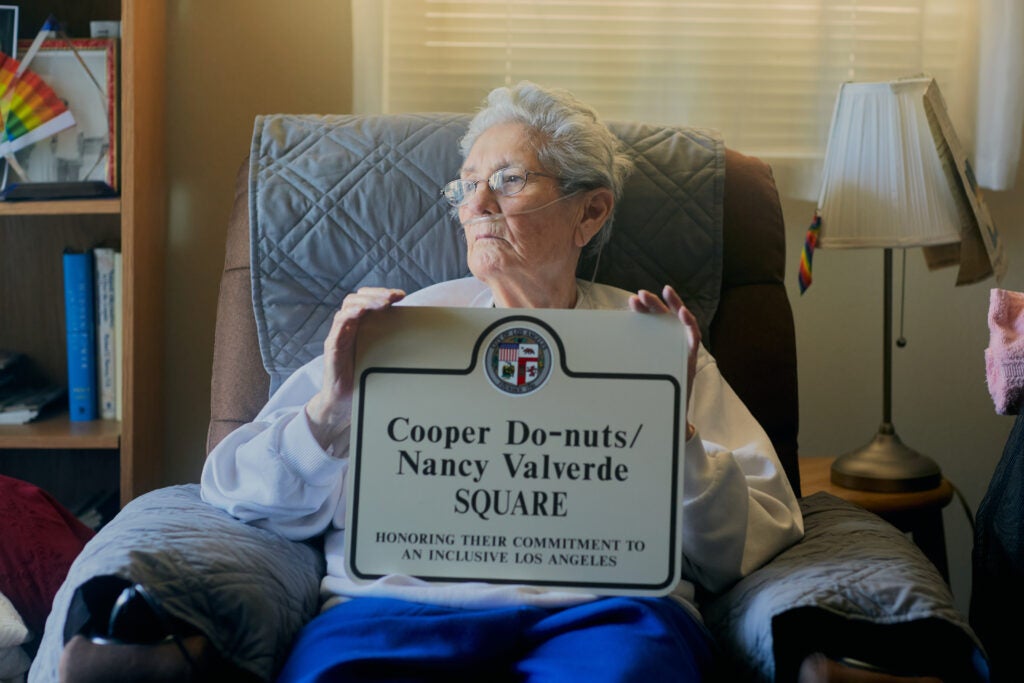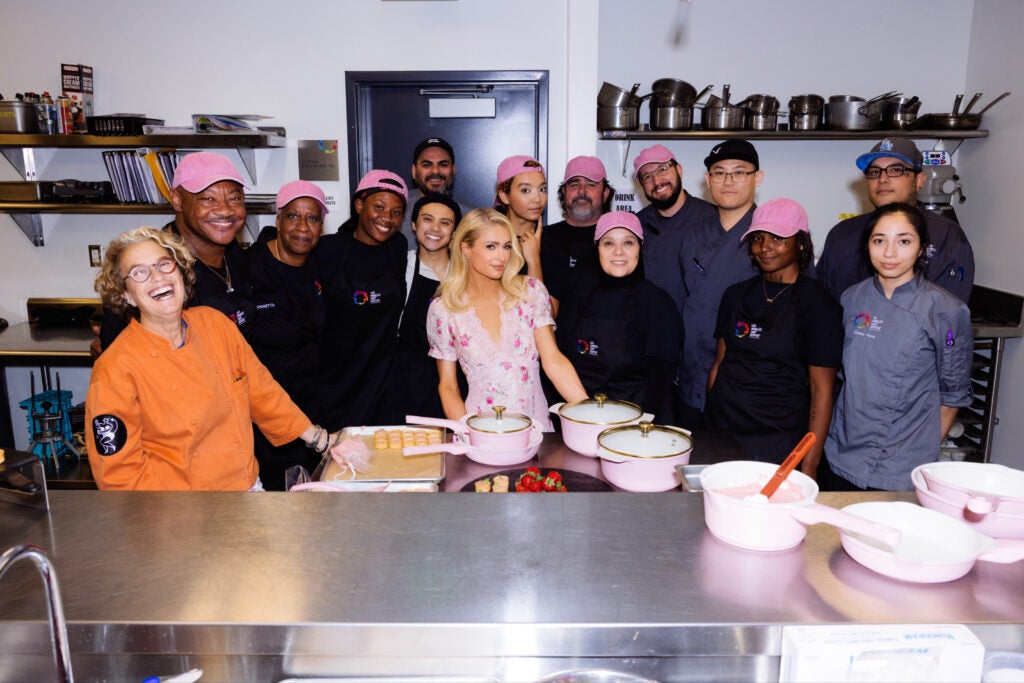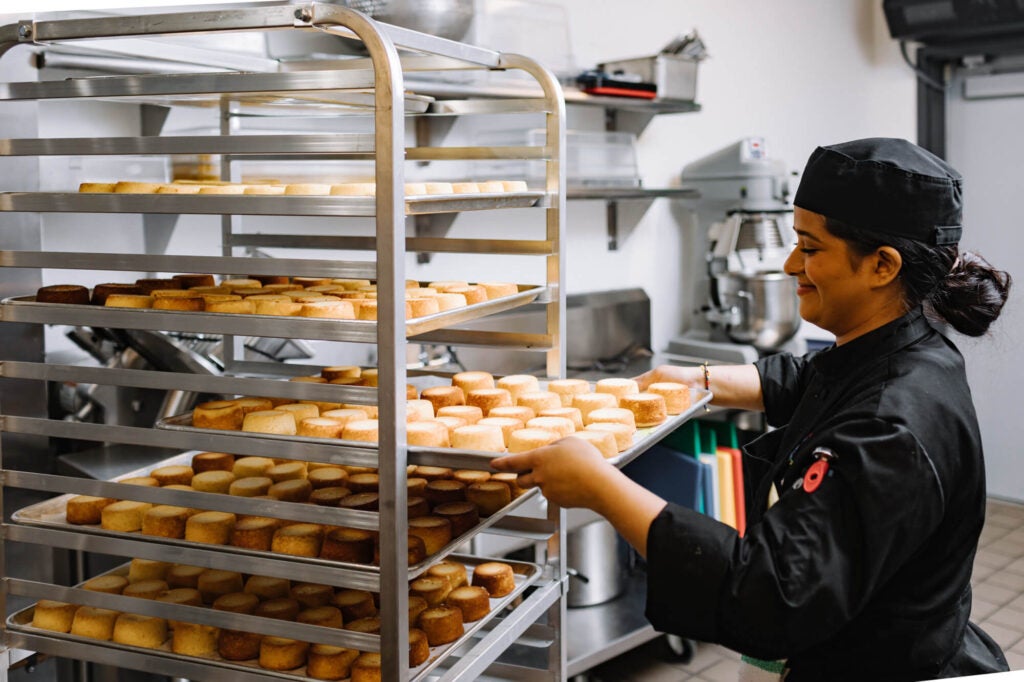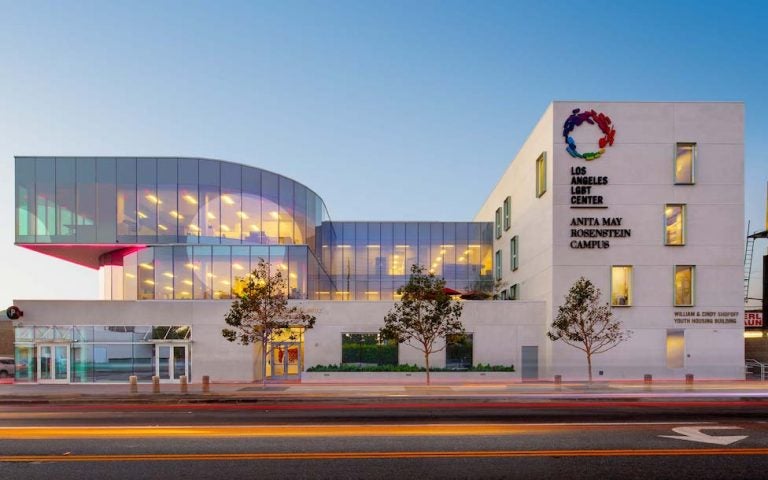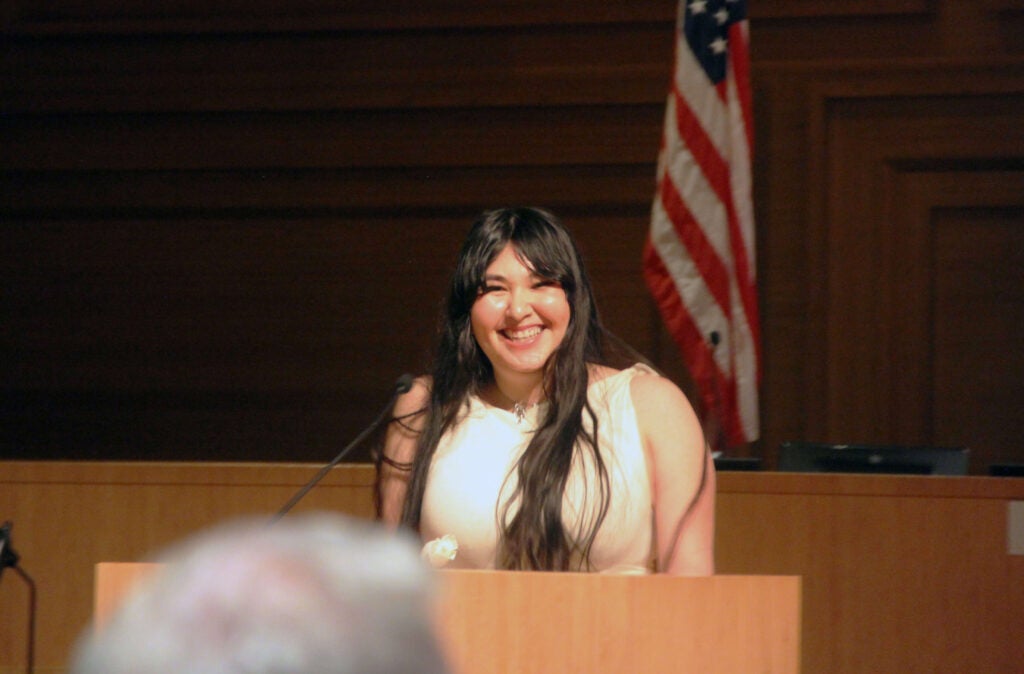Every day, Mi Centro, the Center’s Boyle Heights community hub, helps link people to vital services and programs, including HIV care, mental health services, and emergency housing. For some, it’s their first stop after arriving in the U.S. in search of a place where they can live and thrive as their authentic selves.
By now you may have read about the caravan of thousands of migrants marching through Mexico toward the southern U.S. border. Fleeing social unrest, governmental oppression and unstable economies, as many 7,500 people from 24 different countries are believed to be part of this massive assembly. Last month, Mi Centro helped connect three men from Ecuador to care and services through the Center, as well as LGBTQ-affirming housing in the community. In the weeks since, Mi Centro has also gone on to assist folks from Peru, Chile, and Mexico.
“This small but mighty little community center has become a sanctuary for so many of our LGBTQ+ folks around the world,” says Caín Andrade, program manager of Mi Centro. “We’re making sure we do our best to make them feel at home.”
The site is a partnership between the Center and the Latino Equality Alliance– and was established to address the needs of the Latinx/LGBTQ+ community. Since opening in 2015, Mi Centro has been called “a little piece of heaven for gay Latinos” by the Los Angeles Times and has developed a reputation as a safe haven for those seeking everything from legal services to gender-affirming care.
“I think the trust that we and our collaborators, the Latino Equality Alliance, have cultivated over the last several years—even through the hardest times of the pandemic—has been key,” says Andrade. “And we definitely take it as an honor that the community has that trust and confidence in us.”
“This small but mighty little community center has become a sanctuary for so many of our LGBTQ+ folks around the world.
Caín Andrade, Program Manager, Mi Centro

Can you share a little about the work you’ve been doing with recent arrivals who have been coming to Mi Centro for assistance?
Andrade: About a month ago, we had three gentlemen from Ecuador come in right before New Year’s Eve. They were waiting for us in the lobby as soon as we came in the door. It was a little bit challenging because we knew that a lot of services might be off for the holiday, but thankfully one of my colleagues from the Legal Advocacy Project for Survivors said, “Let’s just get started and see what we can do.” Norma, our program coordinator, came in a few minutes later, and the three of us got to work. We gave them a small “Know Your Rights” presentation for immigrants, walked them through the services we offer, and started calling out to local shelters to see what was available for them. We really tried our best to make sure that these guys were safe before we left for the holiday, because they had just come all the way from Ecuador, and this was their first stop. And they’ve been doing great. The Center has been able to help them with things like HIV services, mental health, and we’ve been offering to have them join us at different community events. Two of them are now working, and their legal matters are already in progress. Just this week alone, we’ve had more folks from Chile, Peru, and Mexico. So I feel like that has been the start of Mi Centro becoming the first stop for folks traveling from other countries.
As these individuals have started becoming more integrated into the community, what kind of feedback have you been getting?
You know, these folks are coming in from different countries around the world, and it’s kind of funny to now say that Mi Centro is their first stop. These folks tell me about the conditions in Chile, Peru, Mexico that make it really difficult for them to be who they are and express themselves as their true selves. Some of them don’t want to disclose that they’re HIV-positive. Some of them don’t want to disclose that they are transitioning. Just today, this lovely trans woman came in wanting to get services from the Center, where she can find community and feel like she’s accepted. She said to us, “I feel like I finally arrived.” That made me so happy, that she found a space where she feels safe and embraced.
She’s coming back later this week for our monthly farmer’s market. A lot of the folks who come by want to show their gratitude in some way for what we’re offering. You know, “I’m a florist,” or “I want to help the Center,” “I want to volunteer and give my time, too.” That’s pretty typical of the folks around here. While they may not have a lot of financial resources, they offer what they can because they’re so grateful just to have a space they can call their own.

Do you know how they’re finding their way to Mi Centro?
For us, word of mouth has been huge. Usually somebody referred them to us or maybe they heard a friend or family member talking about the Center. Sometimes our other sites send them to us because we speak Spanish, and they can easily explain to us what’s going on and what kind of help they need. One really special thing is what I’ve been calling “Las Señoras de la Comunidad,” the Ladies of the Community. I think they are our biggest, most outspoken spokespeople. They’re the ones disseminating the fact that this is a safe space for their families and allies. That’s really been our biggest advertisement.
How does it feel to have that connection to the community and that reputation as a safe place for people?
We don’t take it lightly. I think the trust that we and our collaborators, the Latino Equality Alliance, have cultivated over the last several years—even through the hardest times of the pandemic—has been really key. And we definitely take it as an honor that the community has that trust and confidence in us. And we don’t want to betray that trust, so we always want to make sure that they’re involved in the programming we create. We created a community advisory board with eight folks—LGBTQ+ community members and family—and we take their feedback and recommendations. We let them know, “This is what we want to put in place. How do you all want us to develop this programming? What is going to work? What isn’t going to work?” This is their community center. We work for them.
As you’ve been seeing more and more people come in recently, what comes next in terms of growing to meet the need for services?
One thing that’s becoming really clear is the need for a dedicated Linkage to Care Specialist. It’s certainly becoming evident that more and more folks are going to make this their first stop from different portions of the world, and I don’t think that’s going to slow down. This is something special that’s happening here, and we really want to keep that momentum going. One of the things I always think about when Norma and I are helping folks, is this concept that our CEO Joe Hollandoner brought up, which is the No Wrong Door approach. Any time someone comes in, we don’t want to say, “Oh, I’m sorry, this is not the right department.” We may not be the right place, but we’re going to help find somebody at the Center who can provide you with that service. We’re not going to just put you on a list or like have them contact you if they have time. We’re going to do the legwork so that that person gets the services they need.

What other programs and services does Mi Centro offer?
We recently established our monthly farmer’s market with our partners Seeds of Hope, which we lovingly call mercadito. We just had our first one last month, and we had over 70 people come by. We’re fleshing that out with primary medical services, a vaccine clinic, baked goods from a local bakery, etc. I love seeing so many other organizations and folks from the community be so ready to just jump in and help contribute.
We also offer mental health services, which is really huge. We have two awesome therapists on site who have taken on so many of our community members and offer such comfort and understanding. They’re so kind and compassionate and accessible. There’s also the Legal Services. I love the collaboration that we have with our folks from the Legal Advocacy Project for Survivors, which can help us out with some of our more intense crisis trauma cases. They’ve been amazing partners for us here.
But I think the events and the culture that we have here is also really important. We bring in art exhibitions with local organizations for our mini-gallery here. Last summer, we launched Sabor de Mi Centro, a local Pride celebration that is more reflective of the local drag, music and crafts. I love the cultural aspect of our work; we aren’t just here to provide social services, but we’re feeding the spirit and soul of our great city.

